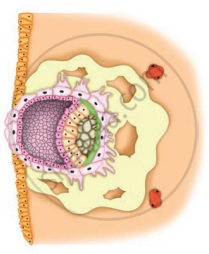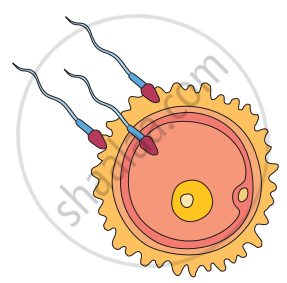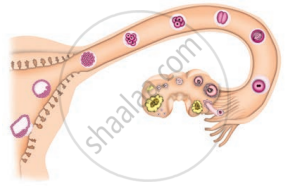Advertisements
Advertisements
Question
How does the amount of DNA remain constant though each new generation is a combination of DNA copies of two individuals?
Solution
Deoxyribonucleic acid (DNA) copying is an essential part of reproduction, as it passes genetic information from parents to offspring. The reproducing cells produce a copy of their DNA through some chemical reactions and result in two copies of DNA. The copying of DNA always takes place along with the creation of additional cellular structure. This process is then followed by the division of a cell into two cells. In this way, the amount of DNA remains constant through each new generation.
APPEARS IN
RELATED QUESTIONS
Write down the different methods of asexual reproduction.
The offsprings formed by asexual reproduction method have greater similarity among themselves because :
(i) asexual reproduction involves only one parent
(ii) asexual reproduction involves two parents
(iii) asexual reproduction involves gametes
(iv) asexual reproduction does not involve gametes
(a) (i) and (ii)
(b) (i) and (iii)
(c) (ii) and (iv)
(d) (i) and (iv)The offsprings formed by asexual reproduction method have greater similarity among themselves because :
(i) asexual reproduction involves only one parent
(ii) asexual reproduction involves two parents
(iii) asexual reproduction involves gametes
(iv) asexual reproduction does not involve gametes
(a) (i) and (ii)
(b) (i) and (iii)
(c) (ii) and (iv)
(d) (i) and (iv)
The number of meiotic and mitotic divisions necessary for development of female gametophyte in angiosperms is ______.
Explain heterostyly and herkogamy with suitable example.
Seminal fluid is ______ in nature.
Nebenkern is ______.
Match the following.
| Column I | Column II |
| Fission | Spirogyra |
| Budding | Amoeba |
| Fragmentation | Yeast |
What will happen if you cut planaria into small fragments?
Assertion and Reason types of Question.
Assertion: Corm is a condensed form of Bulb.
Reason: It has dry and fleshy scale leaves.
Observe the following figures.
 |
 |
 |
|
| (a) | (b) | (c) | (d) |
- Identify the stages (a) to (d) in figure during development of human baby.
- Arrange the stages in correct sequence of development.
- Explain the development that takes place in any one stage.

